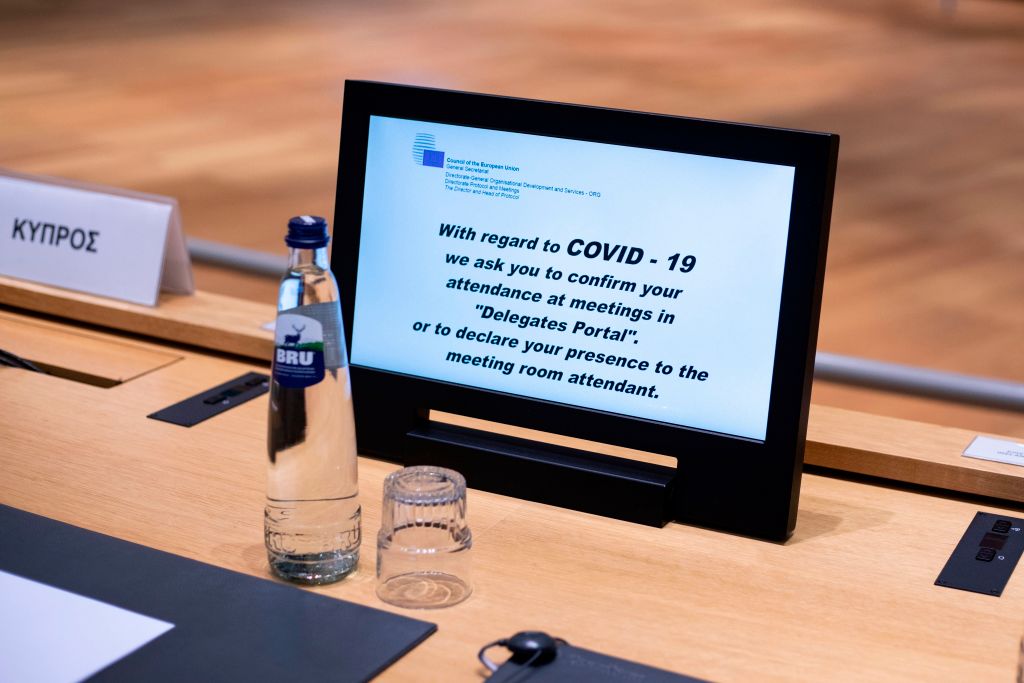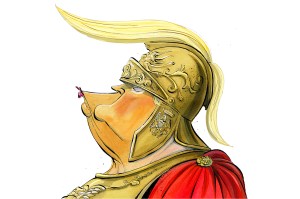Yes, of course Donald Trump’s ban on travel between the US and the Schengen zone is an over-reaction to coronavirus, which will do far more harm to the economy than it will to protect the health of Americans. But it is pretty rich for the EU to be bleating about others banning things without scientific justification.
The EU has protested bitterly about the American ban, complaining it was introduced unilaterally without consultation. Guy Verhofstadt tweets: ‘Instead of a travel ban for Europeans Trump should make a decent health care system that works for Americans.’ The usual anti-Trumpites have weighed in with their ha’porth of wisdom, with Simon Schama calling the travel ban ‘an idiotic and purely political stunt’.
I don’t, as it happens, disagree with Verhofstadt: if I was American I would want a proper, universal public health system. But it is absurd for the EU to complain about other people banning things. This is the same organization that all but drove research into genetically-modified crops away from Europe; that made it hard to conduct fracking within its borders and that bans chlorinated chicken for no scientific reason, because it doesn’t want US chicken-farmers competing with its own. The EU lives and breathes by the precautionary principle. So why should its leaders be so upset and surprised when others decide to act in the same way?
What has Verhofstadt had to say about Italy’s decision to ‘lock down’ its entire country, closing every bar, restaurant and shop except for food and chemists, and imprisoning people in their homes? ‘A message of support to all the Italians,’ he announced yesterday. ‘The rest of Europe is thinking of you and wishes that Italy can go back to normal life as soon as possible.’ No hint of accusing Italy of going over the top. Can he really be surprised that a US president, seeing the pictures of Italy in lockdown, starts wondering whether Italians ought to be kept out of the US? And of course, given the nature of Schengen, a travel ban on Italy means a travel ban on most of the EU.
Banning things, like coronavirus itself, is contagious. One government, one authority bans something, and suddenly it seems irresponsible for other governments and authorities not to do the same. You can see, from how #closetheschools is trending on Twitter, the intense pressure on ministers to shut everything down in Britain. That’s why over the next few days we are likely to see the UK government departing from its pre-arranged plans for a pandemic — which recommended people continue to go about their day-to-day lives as much as possible — and joining in the global shutdown.
In the cold light of day, when this virus has passed, we will of course be asking how much of the emergency measures were really necessary. As with foot and mouth in 2001, when the Blair government realized only belatedly that it had caused more damage to the tourist industry than it had helped the farming industry, I suspect we will come to the conclusion that a lot of it was — overreaction which damaged the global economy more than it stopped the spread of the virus. But if we are going to panic and close everything it is deeply hypocritical to be singling out Trump for overreacting, however much of an arse we might he is.
This article was originally published onThe Spectator’s UK website.



















